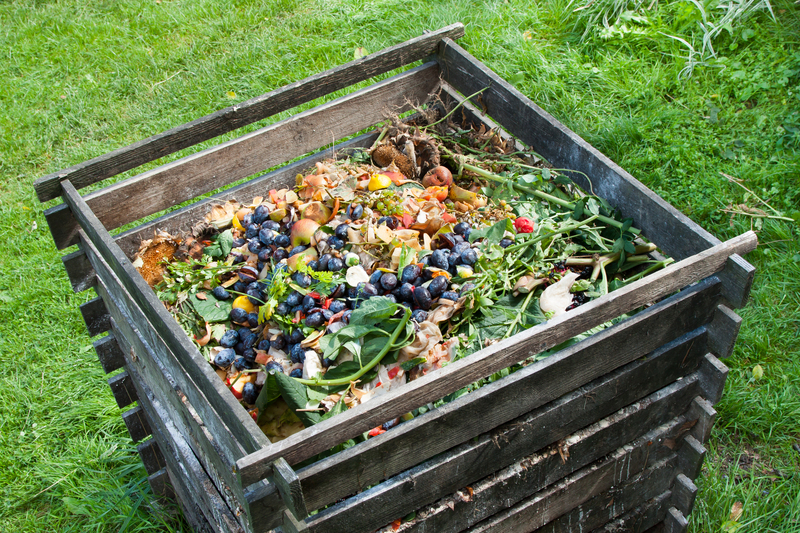Efficient Tips for a Greener Life
Posted on 02/02/2025
Efficient Tips for a Greener Life
In today's fast-paced world, adopting a greener lifestyle is no longer just a trend; it's a necessity. With the growing concerns about climate change and environmental degradation, every small step towards sustainability counts. This article will provide efficient tips for a greener life, helping you reduce your carbon footprint and live more sustainably.
Reduce, Reuse, Recycle
One of the foundational principles of a greener life is the three Rs: Reduce, Reuse, and Recycle. By adopting these principles, you can significantly cut down on waste and conserve natural resources.
- Reduce: Minimize your consumption. Buy only what you need and opt for products with minimal packaging.
- Reuse: Find new ways to use old items. For example, glass jars can be repurposed as storage containers, and old clothes can be turned into cleaning rags.
- Recycle: Properly sort your waste and recycle materials like paper, plastic, glass, and metal to reduce landfill usage.

Conserve Energy
Energy conservation is crucial for a greener life. By using energy more efficiently, you not only save money but also reduce the demand for fossil fuels, thereby lowering greenhouse gas emissions.
- Use LED bulbs: LED bulbs consume up to 80% less energy than traditional incandescent bulbs and last much longer.
- Unplug devices: Many electronic devices consume energy even when turned off. Unplug chargers and devices when not in use.
- Smart thermostats: Install a smart thermostat to automatically adjust heating and cooling based on occupancy, improving energy efficiency.
Choose Sustainable Transportation
Transportation is a significant contributor to carbon emissions. By making smarter choices, you can reduce your environmental impact.
- Public transport: Use public transportation, carpool, or bike to work instead of driving alone.
- Electric vehicles: If you need to drive, consider an electric or hybrid vehicle to reduce emissions.
- Telecommute: Work from home if possible, reducing the need for commuting and the associated carbon footprint.
Adopt a Plant-Based Diet
Reducing meat consumption can have a significant impact on the environment. The production of meat and animal products requires considerable resources, including water, land, and feed.
- Meatless Mondays: Start by having one meat-free day per week. Gradually increase the number of meat-free days over time.
- Local produce: Buy locally-sourced, seasonal fruits and vegetables to minimize the carbon footprint associated with transportation.
- Reduce waste: Plan your meals to avoid food waste and compost organic waste whenever possible.
Use Eco-Friendly Products
Many household products contain harmful chemicals that can damage the environment. Switching to eco-friendly products is a simple yet effective way to green your living space.
- Cleaning supplies: Use natural cleaning products made from ingredients like vinegar, baking soda, and lemon instead of chemical-laden ones.
- Personal care: Choose sustainably-produced, biodegradable personal care products with minimal or no plastic packaging.
- Home goods: Buy furniture and home goods made from sustainable materials such as bamboo or recycled metal and wood.
Grow Your Own Food
Planting a garden, no matter the size, is an excellent way to live more sustainably. Growing your own food reduces the need for store-bought produce, which often comes with plastic packaging and a high carbon footprint.
- Start small: Begin with a small herb garden or a few vegetable plants to ease into gardening.
- Composting: Use kitchen scraps and yard waste to create compost, enriching your garden soil naturally.
- Rainwater harvesting: Collect rainwater to water your garden, reducing the need for tap water.
Pros and Cons of a Greener Life
While a greener lifestyle offers numerous benefits, it's essential to consider both the pros and cons.
Pros:
- Reduces environmental impact
- Saves money in the long run
- Improves health and well-being
- Encourages sustainable habits
Cons:
- Initial costs for eco-friendly products
- Requires lifestyle adjustments
- Limited availability of sustainable options in some areas

Takeaways
Adopting a greener lifestyle may seem challenging, but small, consistent efforts can make a significant difference. Start with manageable changes and gradually incorporate more sustainable practices into your daily routine. Remember, every step counts.
Conclusion
Living a greener life is not only beneficial for the environment but also for your health and well-being. By reducing waste, conserving energy, choosing sustainable transportation, adopting a plant-based diet, using eco-friendly products, and growing your own food, you can contribute to a more sustainable future. Embrace these efficient tips for a greener life, and inspire others to do the same. Together, we can create a healthier planet for future generations.










